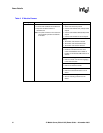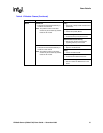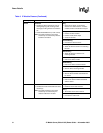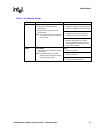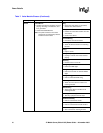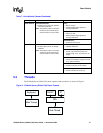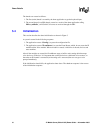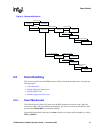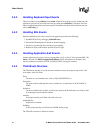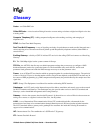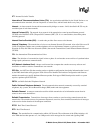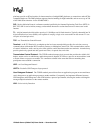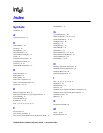
40 IP Media Server (Global Call) Demo Guide — November 2003
Demo Details
5.5.2 Handling Keyboard Input Events
There is an endless loop {while(0)} in the main( ) function in the Main.cpp file. In that loop, the
application waits forever for a keyboard event by calling the waitForKey( ) function. The event
must be handled immediately and event-specific information should be retrieved before the next
call to waitForKey( ).
5.5.3 Handling SRL Events
When the R4/Global Call event is received, the application performs the following:
1. Get METAEVENT by calling gc_GetMetaEvent( ).
2. Get channel ID through device handle to channel mapping.
3. Get device type through device handle to type mapping.
4. Route meta event to the module specified by device type.
5.5.4 Handling Application Exit Events
Normal application exit events, such as pressing either q or Q, or Ctrl+C, don’t enter the SRL. The
main( ) function calls PDLSetApplicationExitPath( ) before initialization. In Windows, this
function enables the detection of CTRL_CLOSE_EVENT (closing the window).
5.5.5 TSUsrEvent Structure
The TSUsrEvent structure is used by the demo modules to return event processing results to the
event router. It has five fields:
Event
The name of a user defined event, such as USR_CONNECTED, etc.
Destination
The name of the module that this event is destined for. A destination can be IP, VOICE, or
NONE.
lineDevice
The device handle in this module. It will be later used by the Event Router as an index to find
its counterpart in the destination module.
xmitSlot
An integer normally to be filled with with a time slot
neighborDevice
neighbor device handle
dialString
A char string normally to be filled with a DTMF dialing string.
The TSUserEvt structure is defined as follows:



